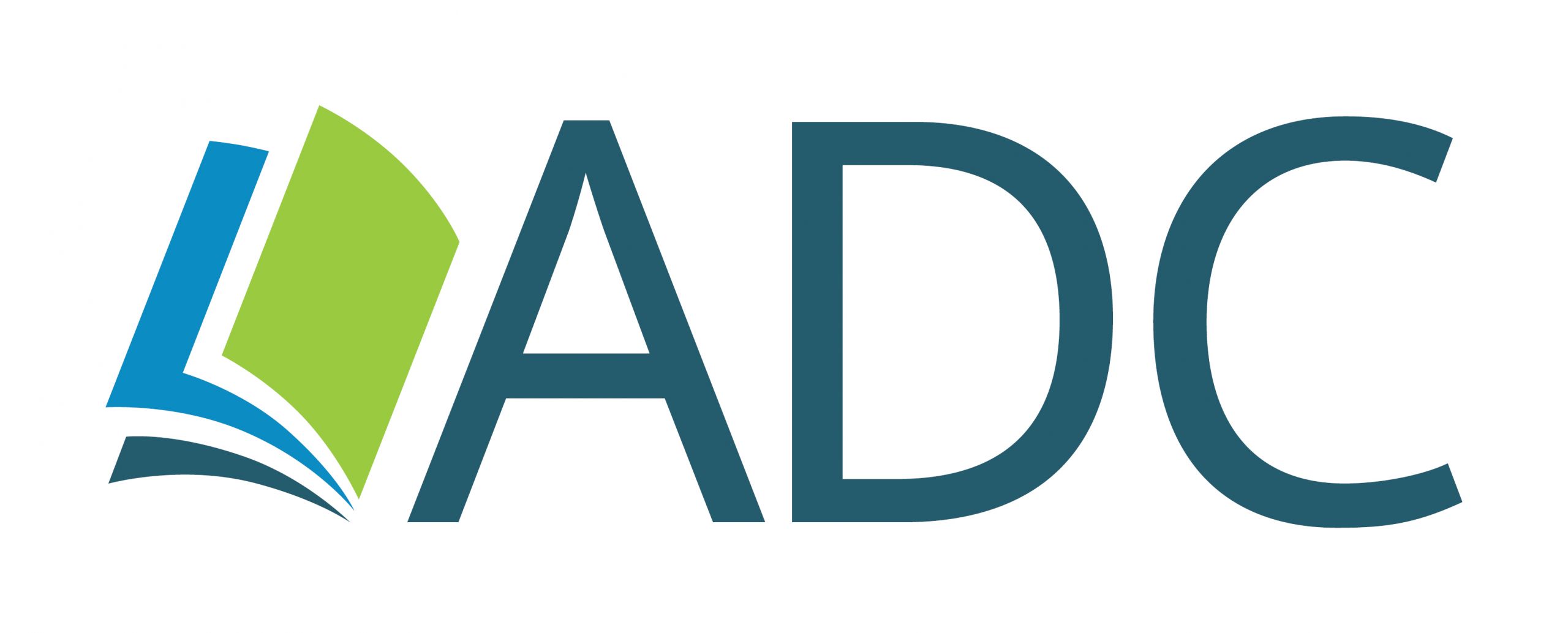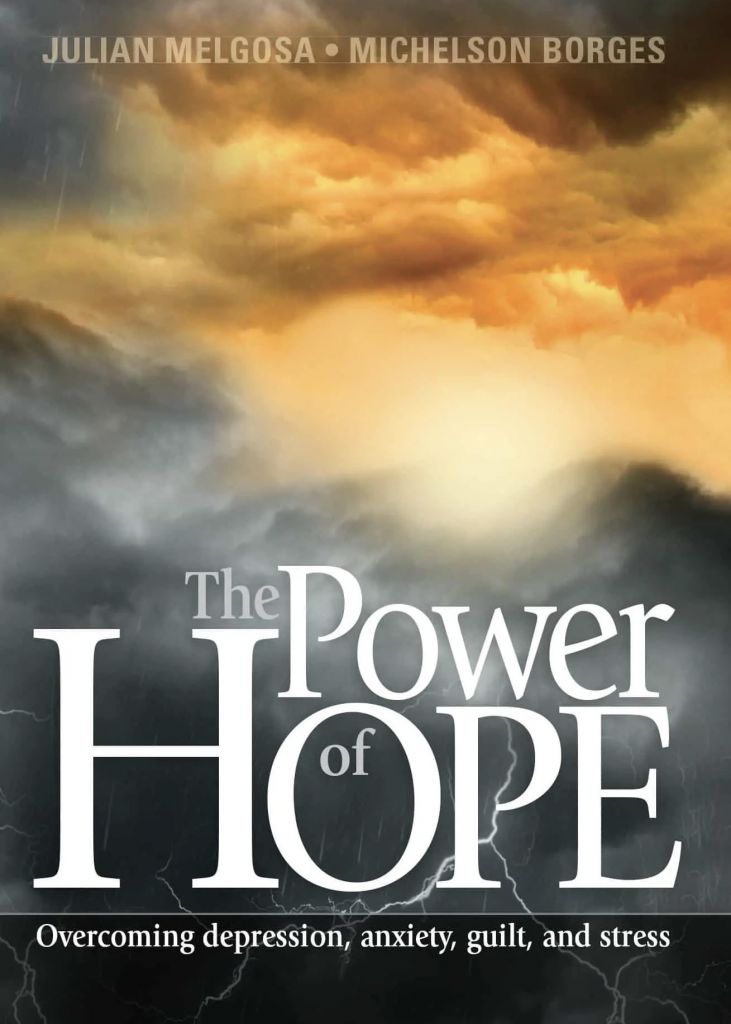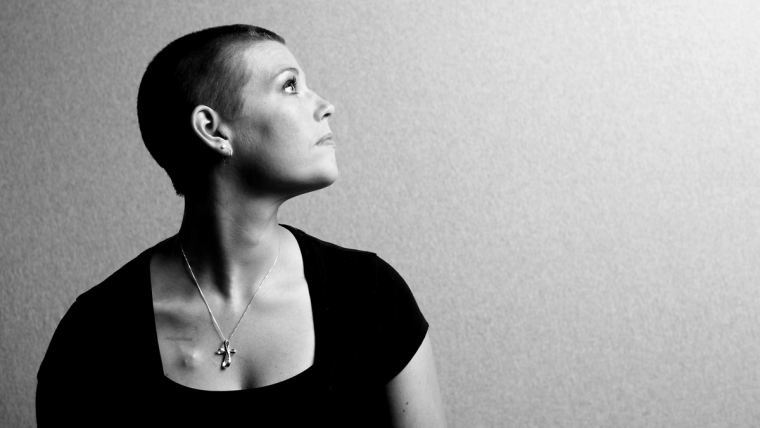Imagine as you walked along a beach that you saw “In the beginning, God created the heavens and the earth” written in the sand. As you read the words, a jovial surfer comes along and says, “These words just appeared in the sand.” Would you believe this explanation? What if he told you that the waves had hit the beach, and the wind had blown against the grains of sand until they were organized in that way? Would you still find this story hard to believe? And if he finally said that all this took place during millions of years? Would that help?
Of course, we are not able to believe a story like this. Intuitively we know that information depends upon a source of information. It does not come out of nowhere. If a phrase written in the sand led us to this conclusion, what can be said of the tremendous amount of information contained in the code of life, DNA?
The complexity of life points to a project, which points to a Project Designer. This is exactly what Paul wrote in Romans 1:19, 20,
“What may be known about God is plain to them, because God has made it plain to them. For since the creation of the world God’s invisible qualities—His eternal power and divine nature—have been clearly seen, being understood from what has been made, so that people are without excuse.”
God is the Creator of life, and there is no one better than Him to tell us how our body functions in the most appropriate manner. The good news is that He left us an instruction manual within the Holy Bible. Curiously, the eight main tips from the Maker (which some call “natural remedies”) are listed at the beginning, in the first book of the Scriptures, in Genesis. If we follow them, they can bring physical, mental, and spiritual health.
Look at this chapter as a prescription from the Doctor of all doctors. Seven healthy attitudes have been confirmed by scientific research. You can trust and believe them, because they really work! And best of all, they are free!
Begin with the ones you consider the easiest (who knows, maybe drinking more water) and gradually progress into practicing the others. The eighth tip we have left for the last chapter. It is a surprise! You will see the difference that it made in the life of stressed-out Paul, anxiety-ridden Laura, depressed Carlos, and even little Isabel with her temper tantrums. But resist the temptation to flip over there now. First, read what comes next. Ask God to help you apply these concepts in your life and return to these “prescriptions” as many times as you may need..
[Most of this chapter (the tips section) is an adaptation, with permission from the author, Francisco Lemos, of the article, “Os Mais Simples Remédios” [“The Most Simple Remedies”], Vida e Saúde [Life and Health], July 2014, 9–25.]
First tip: drink water
“Now the earth was formless and empty, darkness was over the surface of the deep, and the Spirit of God was hovering over the waters.”
(Genesis 1:2)
The human body is 70 percent water. Therefore, it is clear that constantly replacing the water that we lose promotes health and longevity. Water cleans out the body and eliminates impurities in the blood. Every hour, ten times the volume of blood in the body passes through the kidneys to be examined and purified.
Not drinking water often leaves the body vulnerable to inflammation and infections, especially in the kidneys and the urinary tract. But what is the ideal amount of water that we should drink every day? On average, eight glasses per day are recommended between meals, avoiding any intake of liquid with food.
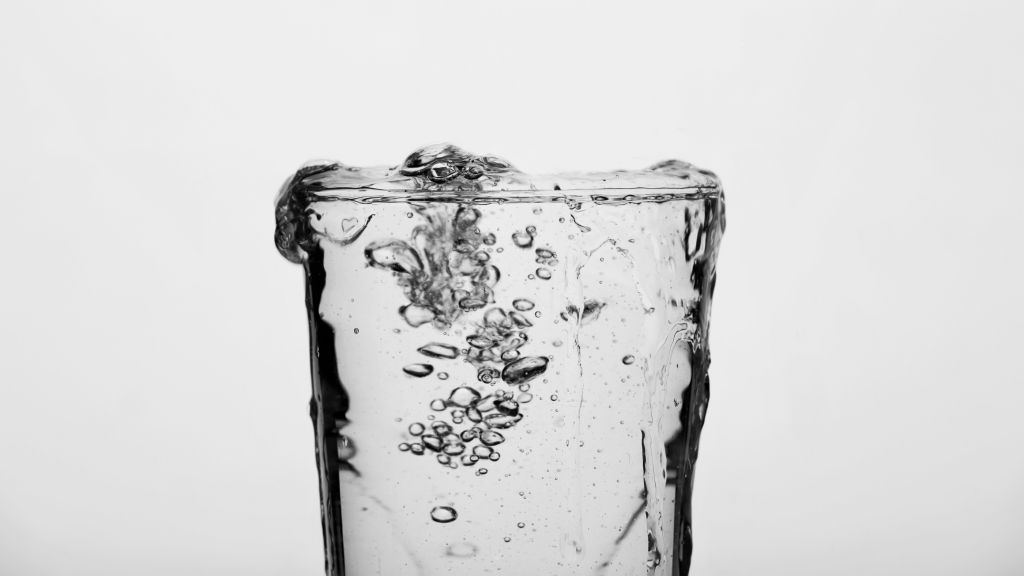
Benefits of water
When you do drink enough water, your body feels well and sends a positive signal to the brain. This helps to improve mood and, consequently, productivity.
When the stomach receives water, the sensation of satiety is prolonged. Additionally, it is good to remember that water does not contain calories, fat, carbohydrates, or sugar!
Water hydrates the skin, which helps to increase the elasticity and delay the signs of aging.
Water helps to strengthen the body’s defense system. When strengthened, it can better fight against disease.
And if I don’t drink water?
If you feel tired, one of the reasons could be a lack of water. It eliminates toxins and waste that can harm the body. Besides this, when you only ingest small amounts of water, the heart needs to work harder to pump blood.
Many times, the reason for headaches and migraines has to do with dehydration. When a headache occurs, before taking any type of medication, drink water to hydrate yourself. It is possible that you can resolve the problem this way.
Bad breath can be a signal of dehydration. The saliva helps the mouth free itself from bacteria and keep the tongue hydrated.
As you can see, water is vital for our body. Drink water!
Second tip: soak in the sun’s rays
“And God said, ‘Let there be light,’ and there was light.”
(Genesis 1:3)
The sun’s rays exercise multiple effects on the human body. They help to fight bacteria and other microbes. The antiseptic action is produced by ultraviolet rays. If the dose of solar radiation that the skin receives is enough, all vital processes will be stimulated by visible light, as well as through infrared and ultraviolet rays, which cannot be seen. Let’s understand how they work:

On the skin
The sun’s rays dilate the superficial veins, causing a greater flow of blood to the skin, and contribute toward avoiding the accumulation of blood in the internal organs of the thorax and abdomen. They stimulate the production of melanin, a cellular pigment that provides the bronzed tone to the skin, and at the same time strengthen the superficial layers of the skin, protecting against an excess of solar radiation. They have bactericide action, eliminating various harmful microorganisms. Consequently, they help to disinfect and heal superficial wounds.
In the bones
They help to form vitamin D in the skin cells. This vitamin favors the assimilation of calcium ingested in food, contributing decisively in the formation and healthy state of the bones.
In the muscles
The sun’s rays improve blood irrigation and stimulate the biochemical energy production processes that occur in the muscle cells. The result is better muscle development and tone, especially beneficial for the sick who are immobilized.
In the blood and in the metabolism
They stimulate hematopoiesis, or the production of red blood cells, white blood cells, and platelets in the bone marrow. They decrease the level of glucose in the blood, thus increasing tolerance to carbohydrates, which is beneficial to diabetics.
In the cardiopulmonary system
The sun’s rays stimulate the sympathetic nervous system, elevating blood pressure, pulse, respiration, basal metabolism, and oxygen intake. However, as the skin begins to become tanned and more resistant, blood pressure and basal metabolism decrease, causing the pulse and respiration to become slower.
In the nervous system
They stimulate the nerve endings in the skin, favorably influencing the brain and bringing about a soothing sensation of well-being.
In the endocrine system
The light stimuli that reach the retina are transmitted to the brain in the form of nervous impulses that act, among other organs, in the pituitary gland, controlling the production of hormones in the other endocrine glands. The activation of the ovaries and the testicles, for example, depend in large part on the amount of light that reaches the retina.
Care
The longer the time spent under solar rays and the lighter the skin, the greater the negative effects will be. These effects include first-degree burns, skin aging, and even skin cancer. In the eyes, too much sun can trigger conjunctivitis (inflammation of the eye) and keratomalacia (inflammation of the cornea), in addition to favoring the formation of cataracts and macular degeneration (alteration of the retina with loss of vision).
Directions
In the morning, open the window in your bedroom and draw back the curtains and blinds. Walk outdoors daily, even when it is cloudy. When possible, between 7:00 and 9:00 a.m. or between 4:00 and 5:00 p.m., take a “sunbath.” Approximately twenty to thirty minutes of sun exposure is enough. If the location where you work is totally enclosed, spend some time outdoors during the lunch hour. When doing physical exercise, give preference to being outdoors or in a well-illuminated environment with the windows open.
Third tip: breathe deeply
“So God made the vault [atmosphere]. . . . God called the vault ‘sky’.”
(Genesis 1:7, 8)
The nose is our system of personal air-conditioning: it warms cold air, cools hot air, and filters out impurities.
Air contains approximately 20 percent oxygen, with the rest being nitrogen and other gases. Since the human body functions with oxygen, each one of the cells needs to receive a constant and renewed supply of these gases or it will die.
Daily, the lungs process about twelve cubic meters (about 425 cubic feet) of air, which enters into the respiratory tract and hits the pulmonary alveoli, reaching an area greater than seventy square meters. The problem is that the same air that transports vital oxygen can also carry other, less healthy gases and additional particles that reach the alveoli and other regions, where they produce irritation.
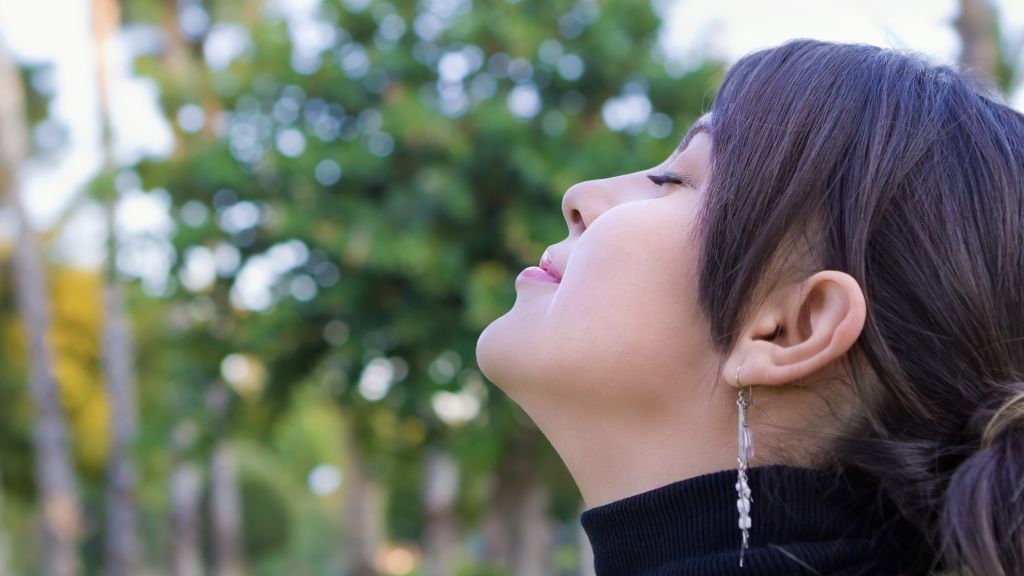
Generally, air pollution acts as a coadjutant factor in a person’s diseases, because it aggravates the already existing situation. People with respiratory and cardiovascular diseases are the most susceptible to harm from air pollution.
We need to breathe
In spite of air pollution, we need to breathe. It is important to spend as much time as possible in contact with nature and in rural areas, where we can find cleaner air.
When we breathe regularly, calmly, and deeply, besides irrigating the brain, the air reaches all parts of the lungs, allowing the blood to adequately circulate through them. There is also an increase of resistance to infections of the respiratory tract (larynx, the trachea, and the bronchi); the mucus retained in the respiratory tract mobilizes and comes out through expectoration or coughing; resistance to infections increases; intellectual performance improves; and irritability is reduced.
Follow these tips for better breathing:
– Eliminate smoke from closed environments.
– Regularly clean the air ducts and filters in air-conditioners.
– Air out your house, opening doors and windows at least once each day. On cloudy or smog-filled days, do this at night or early in the morning.
– If possible, sleep with an open window to ventilate the room.
– Use air purifiers in moderation.
– Do not leave a car running in a garage adjacent to the house or near an open window.
– Do aerobic physical exercise (run, swim, bike, walk vigorously).
– Maintain your car engine to run efficiently.
– Drink water, at least six to eight glasses per day.
– Keep skin clean and hydrated.
– Wash your hair frequently.
– Dispose of trash or waste material properly.
– When looking for a residence, seek locations with better air quality.
– Make a habit of spending weekends and holidays outside of the city. Breathe the pure country air.
– Do not exercise in locations with heavy automobile traffic.
Fourth tip: eat well
“Then God said, ‘I give you every seed-bearing plant on the face of the whole earth and every tree that has fruit with seed in it. They will be yours for food’.”
(Genesis 1:29)
The cardiologist Everton Padilha Gomes carried out a study entitled Advento-Incor, during his doctorate studies in cardiology through the School of Medicine at São Paulo University (USP). The purpose of the long-term study was to analyse the lifestyle of Seventh-day Adventists and the prevalence of precipitating factors for chronic diseases, especially cardiovascular diseases. The results for those who follow the health principles of the Seventh-day Adventist lifestyle, including vegetarianism, were compared to people who did not follow these principles.
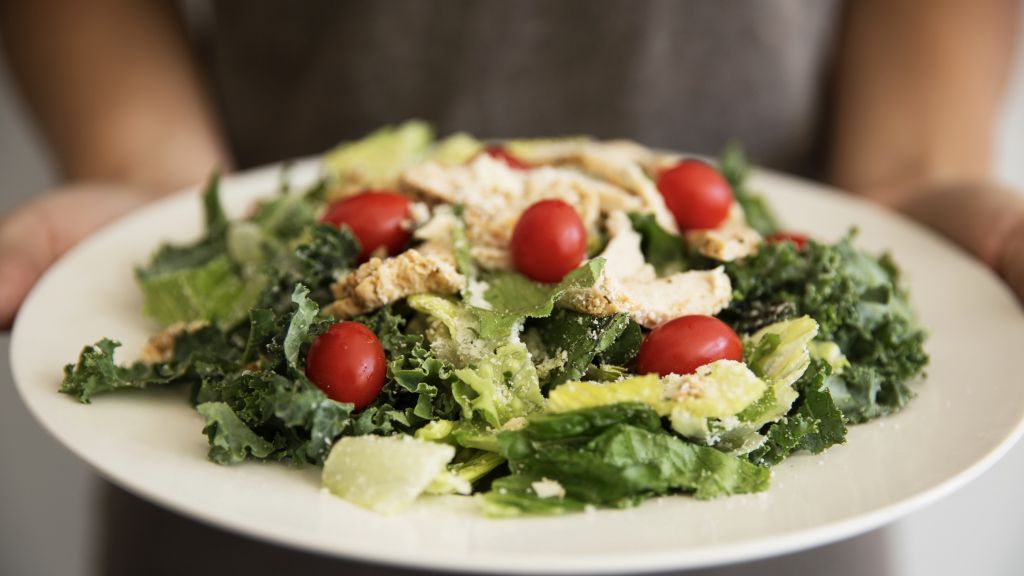
Research in the United States had already demonstrated that the people who followed the health recommendations of the Seventh-day Adventist Church, such as a balanced diet and physical exercise, lived up to ten years longer than the average American. Gomes reproduced the North American research study in São Paulo with 1,500 Seventh-day Adventists between the ages of 35 and 74.
The participants were divided into three groups: strict vegetarians, lacto-ovo vegetarians (vegetarians who eat eggs and dairy), and people who consume meat. The group of vegetarians obtained the most significant responses: a 10 percent reduction in waist measurement and total cholesterol 10 percent lower. The rates that indicate a predisposition to diabetes and alterations in the blood vessels were encouraging: a 20 percent reduction.
Gomes draws on the data to reinforce that “the most important thing is to increase the consumption of fruit, vegetables and legumes at meals so that vegetarians eat a balanced diet.”
At the beginning of the study, Gomes himself maintained his customary habits until, little by little, he gave in: “Either I would keep up with my self-justification and then suffer the consequences of an inadequate lifestyle, many results of which I was beginning to experience, or I had to yield to the evidence,” he confessed.
Fortunately, he opted for the most rewarding route. His dedication to the Advento study provided the challenge he needed. His weight of 282 pounds (128 kilos) and body mass index of 41 began to bother him. Additionally, he wanted his medical “talk” to be in harmony with his own health practices. “I can say that ‘I dusted off ’ many things that I was aware of regarding medicine and many things that I knew through the Adventist Church, which I was not putting into practice,” he confirmed.
From the moment of his decision for a new lifestyle, he affirms that no magic formula was necessary, no special diet: “I adopted a regular diet of three daily meals consisting of simple food. I also eliminated sugar and the majority of pre-prepared food.”
The hours after work spent reading emails, on social networks, or watching media were substituted by the treadmill. “It was not easy, especially during the first month. The astonishing thing is seeing how the body is really dependent on certain things. Initially, I felt like I had no strength. Then it became easier. Currently, without exaggeration, I feel nauseous with the smell of certain foods. My taste has become more refined. Anyway, I feel that my body is functioning better. In three months, my clinical exams changed significantly and positively. Not even with my patients, who make use of more sophisticated medications, did I see some of the changes that I experienced,” he emphasises.
The cardiologist lost almost 110 pounds (50 kilos) in one year. While he applied the study to volunteers, he himself had the greatest benefit. Currently, he feels more freedom to counsel his patients, because they see the difference in his own lifestyle.
Besides the low calories, good proteins, fats, vitamins, and minerals that they contain, foods such as oranges, broccoli, and tomatoes have admirable medicinal qualities. These items, called functional food, can be classified into two groups: foods with immunomodulatory action (they possess phytochemicals capable of activating the immunological system) and food with antioxidant activity (they fight free radicals). The truth is that foods were created to supply the nutritional necessities of living beings. Learning about them and how to use them is synonymous with good health.
The best way to ingest food is in the most natural state possible. The ideal is at least 50 percent of the meal consisting of raw food. Prefer whole foods, which are highly nutritional and rich in fiber and capable of reducing exposure to cancerous agents because of their capacity of regulating the intestinal function.
Highly processed food, animal fat and trans fat, sugar, salt, and refined cereals can cause much damage to health, generating obesity, cancer, diabetes, and decreasing immunological resistance. Cold cuts and sodas are part of a long list that has been proven to harm the body.
It is preferable that three meals per day be consumed, eating well in the morning and a light meal in the evening, several hours before sleeping. Also, it is good to avoid ingesting liquids together with food.
Good nutrition begins with a wise choice of the type of food that will be transformed into nutrients necessary to keep the body in good condition. It is in the intestines that these nutrients are absorbed. A diet rich in fiber promotes the proper functioning of the intestines, which is very important for health.
In the nineteenth century, Ellen White counseled: “After the regular meal is eaten, the stomach should be allowed to rest for five hours. Not a particle of food should be introduced into the stomach till the next meal.” [Ellen G. White, Counsels on Diet and Foods (Washington, DC: Review and Herald®, 1976), 179.]
The salivary glands take several hours to recharge their “stock” of salivary amylase. When anything is eaten prior to the habitual meal, the brain commands the gland to liberate saliva. The stomach also needs a “rest” between one meal and another. So seek to eat at regular times and avoid snacking between meals.
Fifth tip: practice exercise
“The Lord God took the man and put him in the Garden of Eden to work it and take care of it.”
(Genesis 2:15)
One thing is certain, and doctors throughout the whole world agree with this: regular physical exercise provides benefits that no medication can offer. After all, we were created for an active life.
In his book, Spark: The Revolutionary New Science of Exercise and the Brain, a professor and psychiatrist from Harvard, John Ratey, affirms that toxic levels of stress wear out the connections between billions of neurons, and chronic depression contracts certain areas of the brain. On the other hand, physical exercise liberates a flow of neurochemicals and growth factors that can reverse this process, helping to support the cerebral infrastructure. This even contributes to the capacity for learning. [John Ratey, Spark: The Revolutionary New Science of Exercise and the Brain (New York: Little, Brown, 2008), 13, 14.]
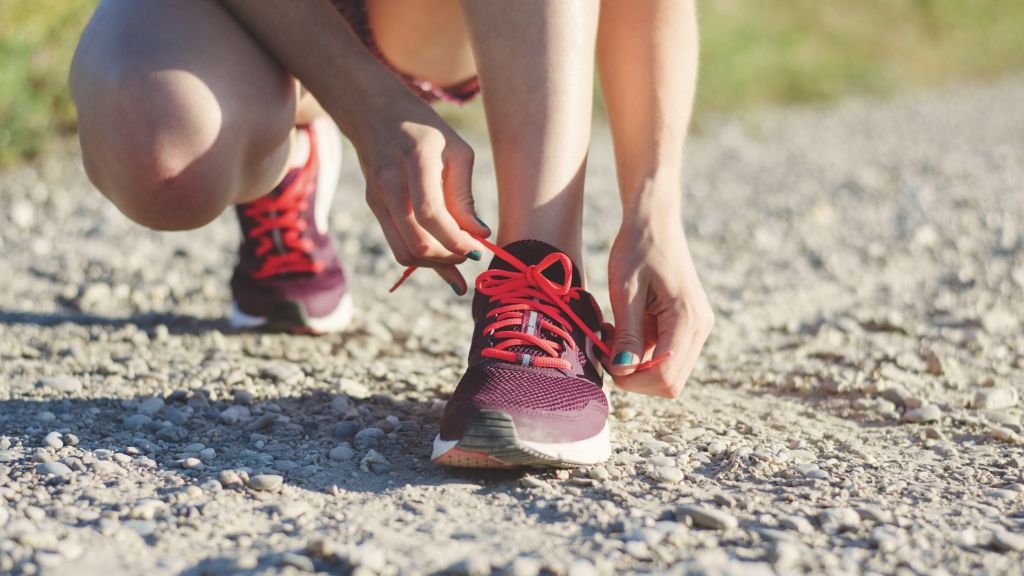
There are many other advantages to the practice of physical exercise:
– It helps to strengthen the heart and increases lung capacity, which helps with the efficient completion of common daily tasks.
– Physical exercise helps to prevent osteoporosis, because it helps the bones to retain a greater quantity of calcium.
– Aerobic exercise (running, biking, swimming, and walking at a fast pace) fights stress and depression. In addition to other benefits, it reverses the situation of acquired metabolic diseases (diabetes, cancer, and heart disease).
– It helps to control blood pressure.
– Regular physical exercise has been demonstrated to be capable of reducing high levels of cholesterol and saturated fat in the bloodstream. Besides this, it increases the production of good cholesterol, which protects the arteries.
– Practicing physical exercise helps one to maintain health, especially if exercise is accompanied by natural food. Additionally, the thyroid is stimulated to remain functioning several hours after physical effort, accelerating general metabolism. This helps one to control weight.
– Physical exercise liberates endorphins and causes a sense of well-being; it keeps depression under control; on a long-term basis, it reduces the resting heart rate, and consequently results in less effort fromthe heart to pump blood; it facilitates the action of insulin and peripheral circulation, treating Type 2 diabetes; it improves self-image; it reduces the rate of triglycerides; and it favors better sleep. In fact, the list of benefits is even longer than that.
And if you still have not been convinced that you need to exercise, it is important to know that continued inactivity can lead to chronic physical deficiency, making people vulnerable to tiredness and unable to perform physical exertion that may be beyond their normal effort. Sedentariness is a proven cause of various diseases.
So, move! Your body, your brain, and your emotions will thank you.
Sixth tip: rest
“By the seventh day God had finished the work he had been doing; so on the seventh day, he rested from all his work. Then God blessed the seventh day and made it holy, because on it he rested from all the work of creating that he had done.”
(Genesis 2:2, 3)
The idolatry of work has found fertile soil in our inborn disposition for consumption and accumulation of goods. In order to have things, many times we kill ourselves from so much work. Many live at the limits of exhaustion, without taking time to enjoy life. Resting involves more than suspending activities. It is renewal and reconstruction. Let’s review some ideas that can help you to have a little more rest.
Work the right amount
Stop your workday at the normal time and go home, leaving all related problems at work. If you think that without you the work cannot go on or the company will fail, remember that you are not indispensable.
Relax
Your muscles need a period of rest and recovery. Remember that one of the best physiological methods of relaxation is physical exercise. A half hour of vigorous walking, for example, is enough.

Sleep
Do not sacrifice your precious hours of sleep in activities that will leave you even more tense. If you have insomnia, avoid taking tranquilisers to sleep. Participate in moderate physical exercise at least four times per week. Do not eat a large amount of food at night. Give preference to food based on fruits and whole-wheat bread. Turn down the lights in the evening. A lukewarm bath before going to bed can also help you to relax. Activities on the computer, such as watching media and news reports, agitate the brain. Instead, read a psalm from the Bible and experience trust in God. Give Him your problems and concerns.
One day each week
Observe one day of the week as a special day of physical, mental, and spiritual rest. As we have already seen, at Creation God concluded the week with a day of rest — the Sabbath. On this day, rest according to the Bible commandment includes the cessation of all common work activities and the designation of time to meditate and carry out activities such as visiting the sick and needy people (Matthew 12:12). If you think that you cannot stop to rest, remember that God created the world in six days and paused on the seventh.
Vacation time once a year
Enjoy your vacation time with your family. This period should be sacred for the family. Go out and do different things, and make a change from your regular activities. Even if you are the owner of your own business, do not miss the chance to set up a plan for vacation. Make arrangements. You need this. Life goes by, children grow up, we grow old and die, and the work remains.
Seventh tip: practice self-control
“You are free to eat from any tree in the garden; but you must not eat from the tree of the knowledge of good and evil, for when you eat from it you will certainly die.”
(Genesis 2:16, 17)
Compulsion is the difficulty that a person has to exercise control over a habit. A large number of people struggle against some type of compulsion: binge eating, or addictions such as smoking, drinking, or sex.

Binge eating is responsible in large part for the high rate of obesity in the world. Many people overeat to fill a void — not just hunger — and they cannot control the impulse through medication.
Smokers have a greater incidence of cancer of the lungs, mouth, larynx, stomach, pancreas, bladder, and kidneys than nonsmokers. Stomach and duodenal ulcers are 60 percent more common among them. The addiction to smoking removes calcium from the bones, accelerating the process of osteoporosis.
The habit of ingesting alcoholic beverages also has a high price. Alcohol promotes an increase in blood pressure, and it is toxic for the cardiac muscle tissue. It increases the risk of stroke and sudden death resulting from arrhythmias and diseased cardiac muscles, besides contributing to the development of cirrhosis and cancer.
To overcome
Resistance to a compulsion begins with exercising self-control, which can be defined in one word: temperance. This is abstinence from all that is harmful and the balanced use of all that is good.
Keeping yourself informed regarding the importance of a healthy lifestyle helps a great deal, but seeking strength from God also is very important. The strength received through prayer and communion with the Creator will influence our capacity to make changes, substitutions, and shifts in our habits.
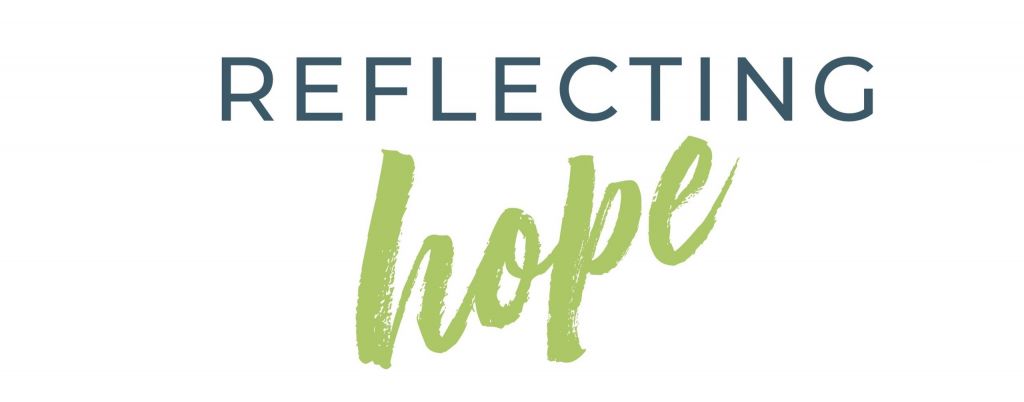
Putting into practice the tips in this chapter would benefit Paul, Laura, Carlos, and even little Isabel. What do you think? If it would be valuable for them, it will also be beneficial for you. Why not begin putting these tips into practice today?
The content of this post is taken from The Power of Hope — Overcoming depression, anxiety, guilt, and stress, authored by Julián Melgosa and Michelson Borges.
Julián Melgosa holds a doctorate in educational psychology from Andrews University. A member of the British Psychological Society, he was a university professor and is the author of various articles and books in the area of emotional health.
Michelson Borges is a journalist with a master’s in theology from Brazil Adventist University. He is the editor of “Vida e Saúde” (Life and Health magazine), is a seminar presenter and has authored books on media, science and religion.
